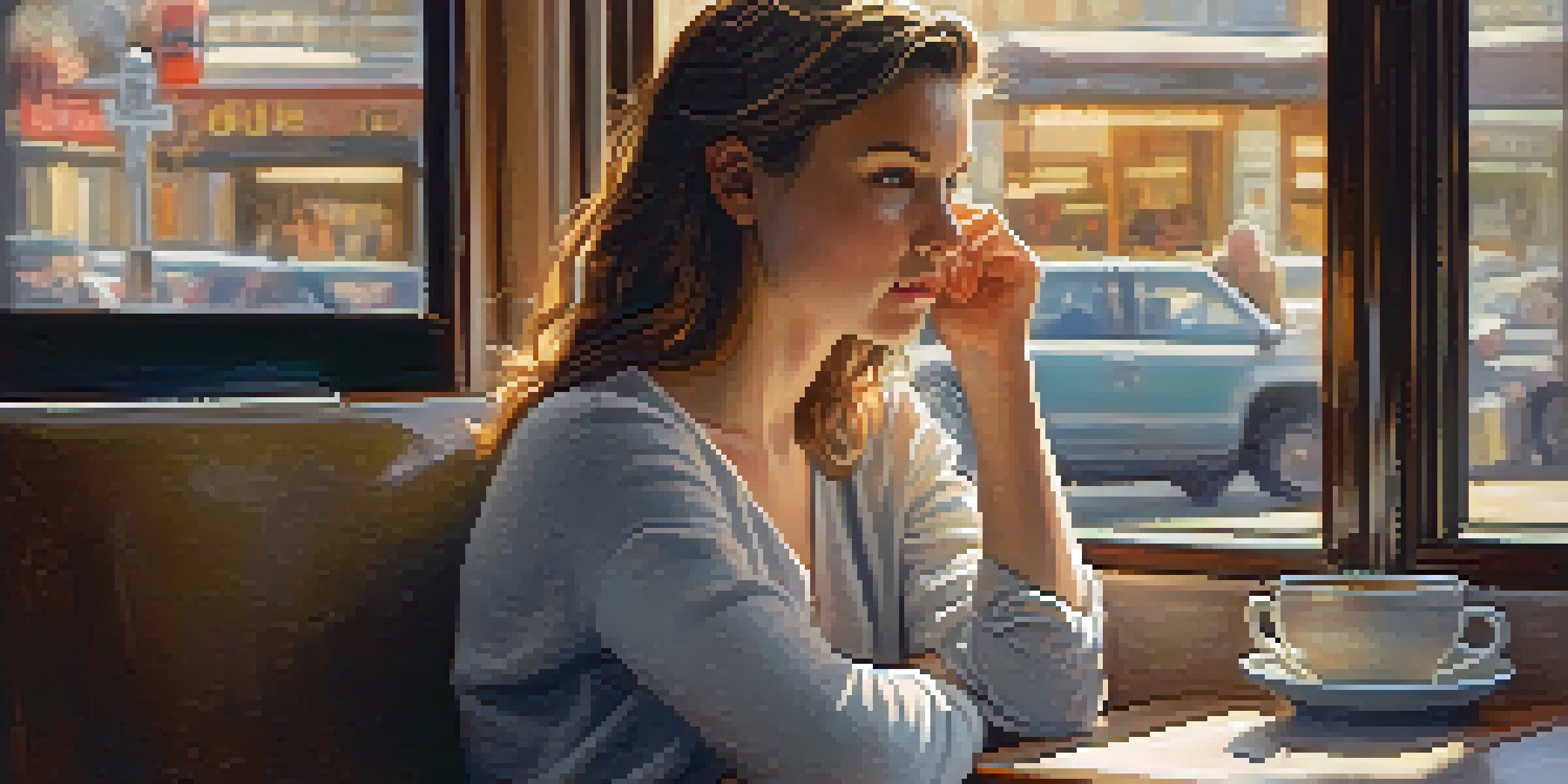Exploring Anxiety in Hollywood Films: A Cultural Reflection

Understanding Anxiety: A Universal Feeling
Anxiety is a common experience, often manifesting as feelings of worry or fear. In Hollywood films, this emotion is frequently depicted in various forms, allowing audiences to connect with characters on a deeper level. By showcasing anxiety, filmmakers reflect societal norms and individual struggles, making these feelings relatable. For example, films like 'Silver Linings Playbook' illustrate how anxiety can impact relationships and personal growth.
The Evolution of Anxiety Portrayals in Cinema
Historically, anxiety was often stigmatized or misrepresented in films, with characters portrayed as either overly dramatic or completely detached. However, as our understanding of mental health has evolved, so has the representation of anxiety on screen. Modern films tend to portray anxiety with more nuance, capturing the complexity of this emotion. For instance, movies like 'Lady Bird' depict anxiety as a natural part of adolescence, making it accessible to viewers.
Anxiety's Role in Character Growth
Anxiety often acts as a catalyst for character development, pushing them to confront fears and grow.
The Role of Anxiety in Character Development
Anxiety often serves as a catalyst for character development in films. Characters facing anxiety are frequently pushed to confront their fears, leading to significant growth. This journey resonates with audiences, as many can relate to overcoming their own challenges. A great example is 'Black Swan,' where the protagonist's anxiety drives her to both artistic brilliance and personal tragedy, illustrating the fine line between passion and obsession.
Cultural Reflections: Anxiety and Society
Hollywood films often mirror societal issues, and anxiety is no exception. As mental health awareness has increased, so too has the representation of anxiety in popular culture. Films that address anxiety can spark important conversations about mental health, reducing stigma and promoting understanding. For instance, 'A Star is Born' not only tells a love story but also highlights the struggles of addiction and anxiety in the entertainment industry.
Cultural Reflection of Anxiety
Films increasingly reflect societal issues surrounding anxiety, promoting mental health awareness and reducing stigma.
Anxiety as a Plot Device in Thrillers
In the thriller genre, anxiety isn't just a character trait; it often drives the plot. The suspense generated by anxious characters keeps audiences on the edge of their seats. Films like 'Gone Girl' utilize anxiety to create tension and uncertainty, making viewers question characters' motives. This clever use of anxiety not only heightens the drama but also allows viewers to explore their own fears in a safe environment.
The Impact of Anxiety on Audience Engagement
Portraying anxiety in films can significantly enhance audience engagement, as it elicits empathy and connection. Viewers are often drawn to stories that reflect their own experiences, and anxiety is a feeling many can relate to. This connection can lead to a more immersive viewing experience, as audiences become emotionally invested in the characters' journeys. Films like 'The Perks of Being a Wallflower' resonate with many for this very reason, creating a shared understanding of anxiety.
Engaging Audiences Through Anxiety
Portraying anxiety in films enhances audience engagement by eliciting empathy and creating relatable experiences.
The Future of Anxiety Representation in Film
As society continues to evolve, so too will the representation of anxiety in Hollywood films. There is a growing demand for authentic portrayals that resonate with diverse audiences. Filmmakers are increasingly challenged to depict mental health issues with sensitivity and accuracy, moving beyond stereotypes. The future holds promise for films that not only entertain but also educate, fostering a deeper understanding of anxiety and its impact on individuals.
Conclusion: Embracing Anxiety in Storytelling
In conclusion, anxiety is more than just a theme in Hollywood films; it is a reflection of our collective human experience. By exploring anxiety through the lens of cinema, we can foster empathy and understanding towards those who struggle with it. The evolution of this portrayal highlights the importance of mental health awareness in our society. As audiences, embracing these narratives can help us confront and discuss our own anxieties more openly.